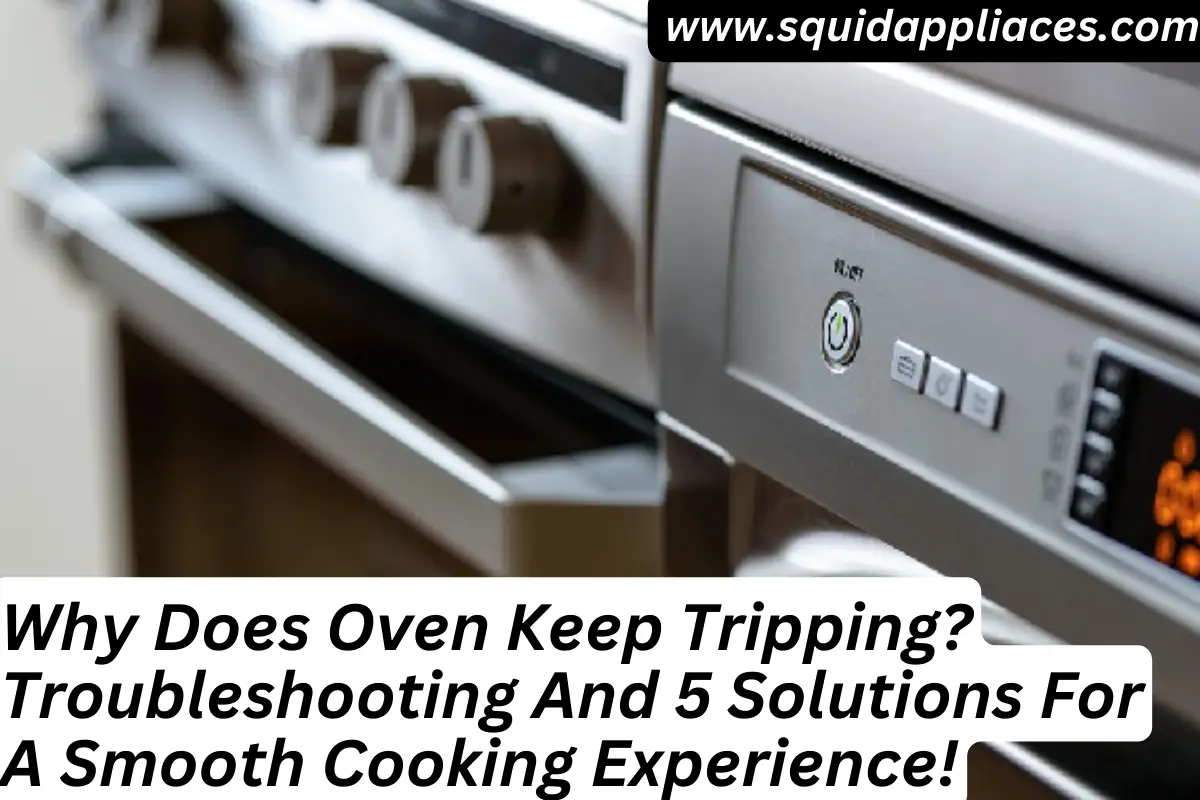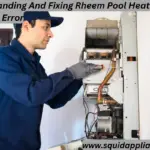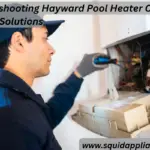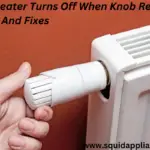Have you ever experienced the frustration of your oven continually tripping? It can be a major inconvenience, especially when you’re in the middle of preparing a delicious meal. But fear not, as I am here to guide you through troubleshooting and provide you with five solutions for a smooth cooking experience!
In this article, we will delve into the reasons behind your oven’s constant tripping and explore various ways to address the issue. From understanding electrical overload to checking for faulty wiring, resetting the circuit breaker, avoiding overloading the oven, and even seeking professional help if needed, we will cover it all.
So sit back and relax as I take you on a journey towards reclaiming your kitchen and ensuring your oven functions flawlessly. Get ready to cook up a storm without any interruptions!
Why Does Oven Keep Tripping?
“Yes, your oven might trip due to electrical overload or faulty wiring. Regular maintenance, understanding electrical capacity, and avoiding overloading prevent tripping. Seeking professional help ensures a safe cooking environment. Keeping a clean oven helps maintain a smooth cooking experience.”
Key Takeaways
- Electrical overload is a common cause of oven tripping, so understanding the electrical capacity of your home and distributing the load properly is important.
- Regular maintenance and inspections can help identify potential issues with the oven’s wiring before they become a problem.
- Overloading the oven with too many appliances can cause it to trip, so proper ventilation and avoiding overheating are crucial.
- Seeking professional help is recommended if the oven continues to trip, as trained technicians can quickly identify and fix the root cause of the problem.
Understanding Electrical Overload
If you’re running too many appliances at once, your oven can’t handle the electrical load and trips. This is a common cause of oven tripping.
To prevent this issue, it’s important to understand the electrical capacity of your home and distribute the load properly. Avoid using multiple high-powered appliances simultaneously and consider upgrading your electrical system if needed.
Regular maintenance and inspections can also help identify any potential issues before they become a problem.
Checking for Faulty Wiring
Experiencing frequent power outages? It might be time to check for faulty wiring in your oven. Here are some steps to help you identify and fix any issues:
- Inspect the power cord: Look for any frayed or damaged wires that may be causing a short circuit.
- Test the heating elements: Use a multimeter to check if the elements are receiving the correct amount of voltage.
- Check the control board: Look for any burnt or loose connections that may need replacing.
- Verify the power supply: Test the outlet and circuit breaker to ensure they’re providing sufficient power.
By following these steps, you can replace faulty parts and test your oven’s power supply, ensuring a smooth cooking experience without tripping issues.
Resetting the Circuit Breaker
To restore power and prevent further interruptions, try resetting the circuit breaker. This is a common troubleshooting method for resolving oven tripping issues. When the circuit breaker trips, it indicates an electrical overload or short circuit. Resetting the breaker allows you to test if the oven will function properly without continuously tripping.
If the problem persists, it may be caused by faulty wiring or other issues that require alternative troubleshooting methods.
Avoiding Overloading the Oven
One way to prevent the oven from continuously tripping is by being mindful of how many appliances are being used simultaneously in the kitchen. Avoiding overheating and ensuring proper ventilation are key factors in preventing overloading the oven.
Overuse of other high-powered appliances, such as microwaves or electric grills, can cause excessive heat buildup in the kitchen, potentially leading to the oven tripping. Adequate airflow and ventilation are essential for maintaining a stable temperature within the oven and avoiding any unnecessary power interruptions.
Seeking Professional Help
If you’re struggling with your oven constantly tripping, it’s time to seek professional help for a hassle-free and enjoyable cooking experience.
Finding DIY solutions can be challenging when dealing with common oven tripping causes. However, a trained technician can quickly identify the root cause of the problem, whether it’s a faulty heating element or an electrical issue.
They have the knowledge and expertise to fix the problem efficiently, ensuring your oven operates smoothly without any further interruptions.
Frequently Asked Questions
Can a faulty oven cause an electrical overload in my entire house?
Yes, a faulty oven can cause an electrical overload in your entire house. To troubleshoot a faulty oven, check for loose connections, damaged wiring, or a malfunctioning heating element. It’s important to address these issues promptly to prevent damage to other appliances.
How can I tell if the wiring in my oven is faulty?
To determine if the wiring in your oven is faulty, look for signs such as sparks, burning smells, or inconsistent heating. To fix faulty oven wiring, consult a professional electrician to ensure safe and proper repairs.
Why does my oven trip the circuit breaker when I use multiple burners at the same time?
When using multiple burners at the same time, your oven may trip the circuit breaker due to an overload. To troubleshoot and prevent this issue, ensure proper electrical connections, avoid using high-powered appliances simultaneously, and consider upgrading your electrical system if needed.
Are there any precautions I can take to prevent overloading my oven?
To prevent overloading and maintain oven efficiency, it is important to be mindful of the power requirements for your oven. Avoid using multiple burners simultaneously, and ensure that the circuit breaker can handle the load. Regular maintenance is also crucial.
When should I consider seeking professional help for my tripping oven?
If you experience common signs of faulty oven wiring, such as frequent tripping, it is best to hire a professional. Attempting to fix the issue yourself may lead to further damage or safety hazards.
Conclusion
In conclusion, troubleshooting and resolving issues with a tripping oven is crucial for a smooth cooking experience. By understanding electrical overload and checking for faulty wiring, we can identify the root cause of the problem.
Resetting the circuit breaker and avoiding overloading the oven with too many appliances can help prevent future trips. However, if these solutions don’t work, it’s advisable to seek professional help to ensure the safety and proper functioning of your oven.
Remember, maintaining a well-functioning oven is essential for efficient and enjoyable cooking sessions.






